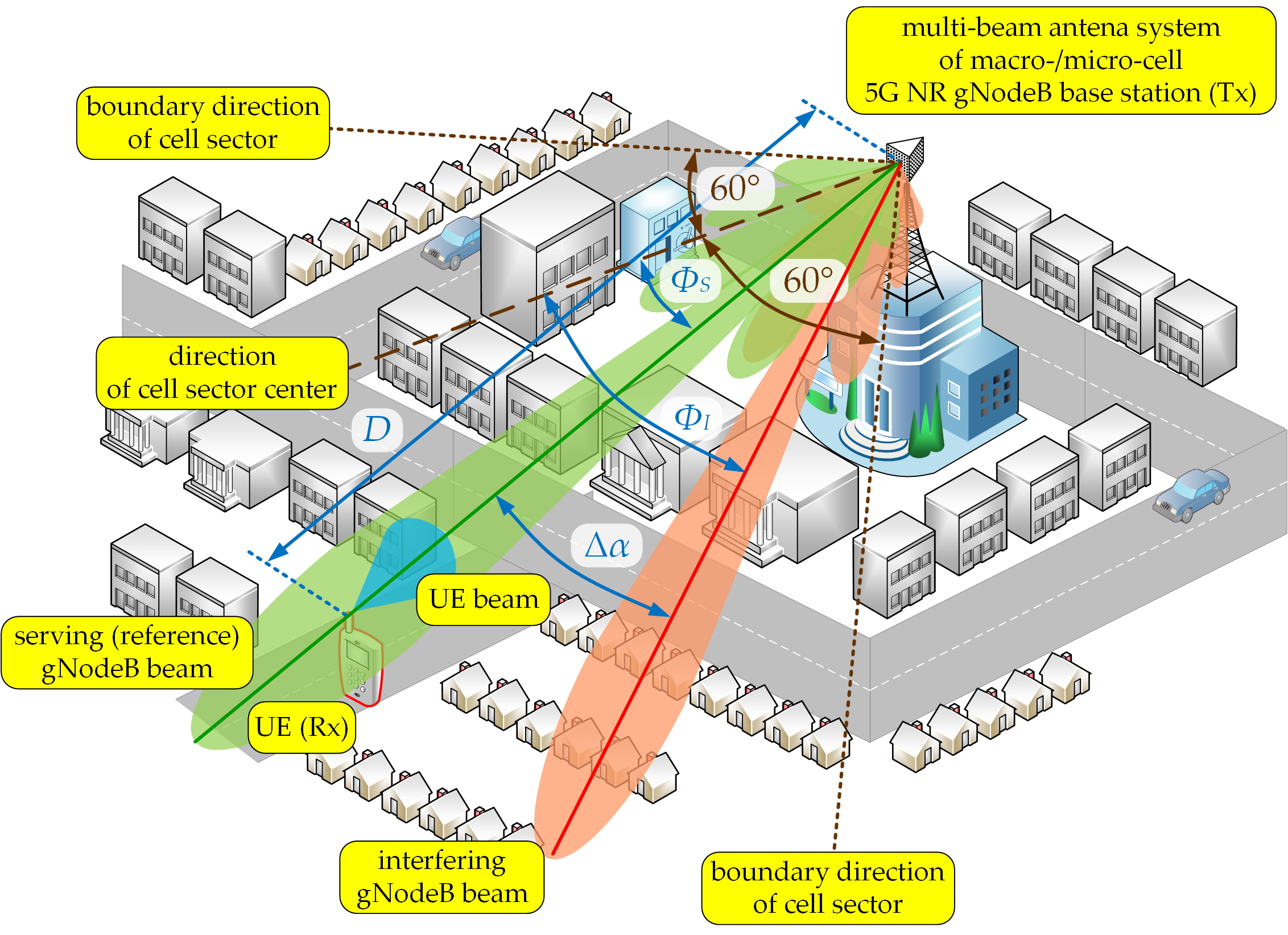"Inter-beam co-channel downlink and uplink interference
for 5G New Radio in mm-wave bands"
next paper in MDPI Sensors journal
for 5G New Radio in mm-wave bands"
next paper in MDPI Sensors journal
"Inter-beam co-channel downlink and uplink interference for 5G New Radio in mm-wave bands" is the 3rd paper published in the MDPI Sensors journal. This article is a continuation of the topic discussed in the previous article "Modeling of downlink interference in massive MIMO 5G macro-cell". Like the mentioned paper, this one was developed together with Kamil Bechta from Nokia Poland, Cezary Ziółkowski, and Leszek Nowosielski from the MUT. In this case, we present a simulation study analysis for an uplink and downlink interference in the 28 GHz band. These studies were based on the 3D multi-ellipsoidal propagation model. I invite you to read our article.
Abstract:
This paper presents a methodology for assessing co-channel interference that arises in multi-beam transmitting and receiving antennas used in fifth-generation (5G) systems. This evaluation is essential for minimizing spectral resources, which allows for using the same frequency bands in angularly separated antenna beams of a 5G-based station (gNodeB). In the developed methodology, a multi-ellipsoidal propagation model (MPM) provides a mapping of the multipath propagation phenomenon and considers the directivity of antenna beams. To demonstrate the designation procedure of interference level we use simulation tests. For exemplary scenarios in downlink and uplink, we showed changes in a signal-to-interference ratio versus a separation angle between the serving (useful) and interfering beams and the distance between the gNodeB and user equipment. This evaluation is the basis for determining the minimum separation angle for which an acceptable interference level is ensured. The analysis was carried out for the lower millimeter-wave band, which is planned to use in 5G micro-cells base stations.
Links:
jkelner.com
Jan M. Kelner homepage
Address:
Military University of Technology
Faculty of Electronics
Gen. Sylwester Kaliski St. No. 2
00-908 Warsaw
Poland
email: jan.kelner@(NOSPAM)wat.edu.pl
